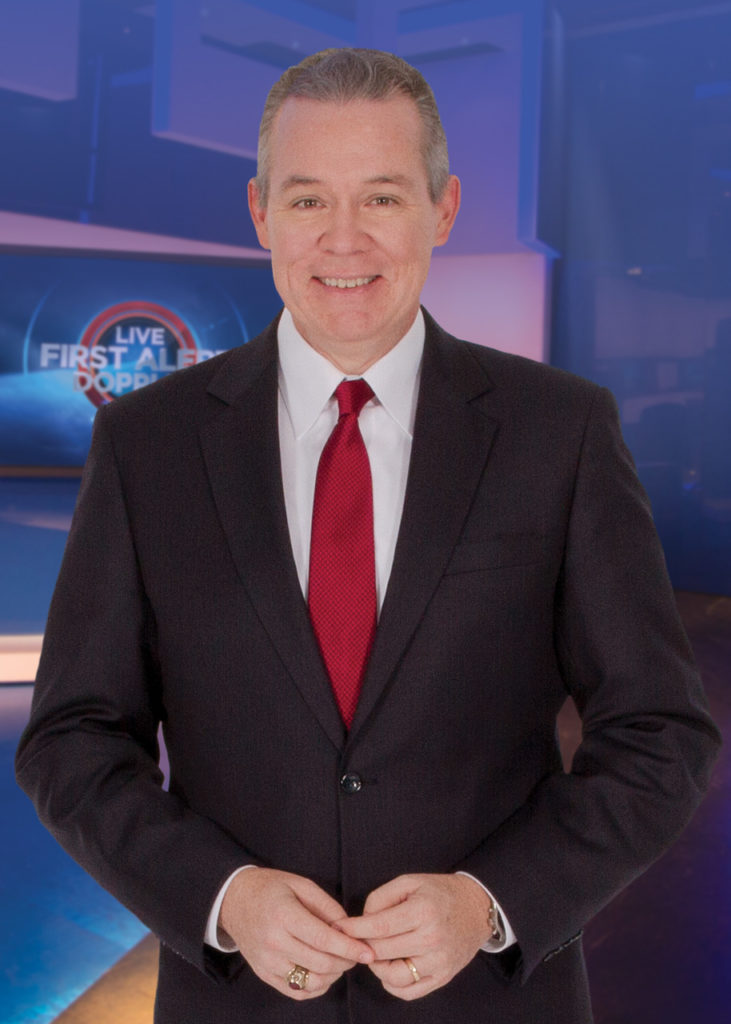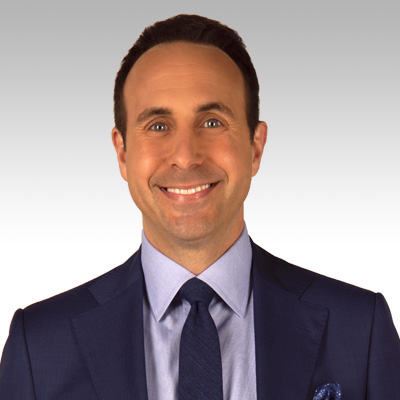By Laurie Mermet, The Invading Sea
Broadcast meteorologists are leading the charge in educating the public about the impacts of climate change in Florida, including the rapid intensification of hurricanes.
Two recent events featured Florida meteorologists who have made climate science a key part of their television reports: Jeff Berardelli, chief meteorologist and climate specialist for NBC affiliate WFLA in Tampa, and John Morales, hurricane specialist for NBC affiliate WTVJ in Miami.
Morales, the longest-tenured broadcast meteorologist in South Florida, said more meteorologists should integrate climate science into their reporting.
“Many more broadcast meteorologists are doing that today than used to do it 10 or 20 years ago, and that is very positive,” he said. “However, they’re still not enough. … It should be everyone, frankly.”
Morales spoke on Aug. 27 to an online meeting of the Florida Climate Educators Network, an organization for educators who help inform people about climate change in their communities. Berardelli spoke on Sept. 17 with climate scientist and former TV meteorologist Chris Gloninger in a webinar hosted by C-Change Conversations, a nonpartisan group aimed at helping people understand the urgency of climate change without inflaming partisan passions.
Both discussions underscored the critical role of communication in addressing the climate crisis and the need for more comprehensive climate education.
Florida Climate Educators Network meeting with John Morales
Morales’ presentation to the Florida Climate Educators Network centered around intensifying hurricane activity driven by the warming climate.

Morales painted a sobering picture of the future. He pointed out that hurricanes are becoming more dangerous due to two key trends: rapid intensification and slower movement.
“Seventy-nine percent of all cyclones that reach major status go through rapid intensification cycles,” Morales said, emphasizing how this phenomenon contributes to increased destruction.
He pointed to Hurricane Ian, Florida’s costliest disaster to date, which caused over $100 billion in damage in 2022. According to Morales, climate models have long predicted more intense hurricanes, and the recent rise in stronger storms proves these predictions right.
“In the U.S., the time between each billion-dollar disaster is down, on average, to 11 days,” Morales said.
Morales was clear in linking climate change to human activities: “The burning of fossil fuels has led us to this point, and it’s going to get worse before it gets better,” he said.
Beyond the science, Morales talked about the evolving role of meteorologists in incorporating climate context into their weather segments.
“If we’re going to be your earth scientists, then should we not cover climate? Of course, we should,” he said.
He explained that two decades ago, fewer meteorologists discussed climate change due to less frequent extreme weather events.
“I am amongst the handful of broadcast meteorologists who started to do this 20 years ago, which is (to) provide climate context in weather segments,” he said.
C-Change Conversations: Interview with Jeff Berardelli and Chris Gloninger
Kathleen Biggins, the founder and president of C-Change Conversations, led the interview with Berardelli and Gloninger. The conversation focused on how climate change is affecting weather patterns and the challenges of communicating the urgency of the crisis to the public.
Berardelli explained how climate change is leading to hotter heat waves, heavier downpours and more rapid intensification of hurricanes.

“Here in Florida, the easiest way to get people to listen is to talk about how hurricanes are getting worse,” he said, pointing out the struggle to engage audiences who may not feel personally affected by climate change.
Gloninger, a senior climate scientist at the Woods Hole Group who previously spent 18 years as a broadcast meteorologist, echoed this sentiment. He recalled facing harassment and even death threats when he delivered climate-related weather forecasts in Iowa, which contributed to him leaving the position.
“There’s a large number of people that still don’t believe that they’re being personally affected by climate change,” Gloninger said, citing research from the Yale Program on Climate Change Communication.
Both Berardelli and Gloninger agreed that younger generations are more open to accepting the realities of climate change, though significant challenges remain.
“I don’t know how much we can accomplish with communication if people are so resistant to hearing the message,” Berardelli said.
When asked how they tailor their messaging, Berardelli said, “You need to speak the person’s language — meet them where they are.”
For some, this means framing climate change as a moral issue, focusing on the need to protect future generations. For others, economic arguments about rising costs and the growing frequency of natural disasters resonate more.
Gloninger noted that lower-income populations are disproportionately impacted by the effects of climate change. They can sometimes both work in extreme heat and live in homes that are not properly insulated for those temperatures, he said.
“We have people that are spending a quarter or more of their salaries on heating and cooling costs – especially cooling costs,” he said.
Berardelli pointed to a picture of his 3-year-old daughter in explaining how to reach more people about climate change.
“We have to leave the world a livable place for our daughters and sons, for children and grandchildren. But I don’t think everyone speaks that language,” he said.
Laurie Mermet is a Florida Atlantic University senior majoring in multimedia journalism who is reporting for The Invading Sea during the fall 2024 semester. Banner image: Hurricane Idalia rapidly intensified before making landfall in the Big Bend region of Florida in 2023. (SSEC/CIMSS, University of Wisconsin–Madison, Public domain, via Wikimedia Commons)
Sign up for The Invading Sea newsletter by visiting here. If you are interested in submitting an opinion piece to The Invading Sea, email Editor Nathan Crabbe at ncrabbe@fau.edu.




Morales said “it is going to get worse before it gets better.” He is sure an optimist. I doubt things are going to get better. At best we may keep things from getting worse. I don’t see things getting better. Damage is already done, but maybe if we set our minds to it, we can keep things from getting worse.